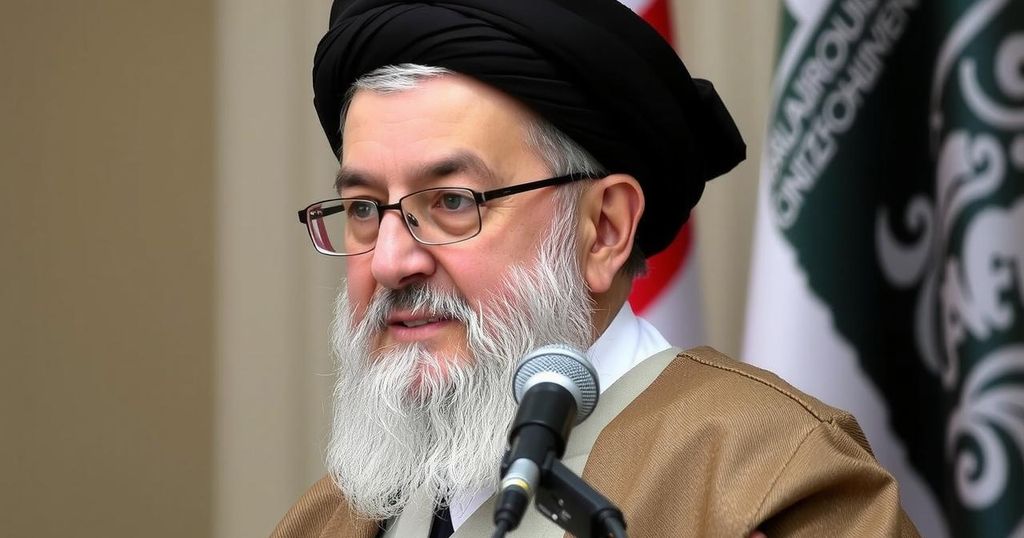Ayatollah Khamenei declares Israel is mistaken in believing the uprising is over, reinforcing Iranian support for resistance movements. The IRGC enhances control over oil exports to fund regional operations. Italian Defense Minister Crosetto’s upcoming visit underscores defense partnerships, while a potential hostage deal is reportedly close. Palestinian families sue the U.S. over IDF support, reflecting discontent amidst ongoing tensions in Gaza. Saudi Arabia’s normalization with Israel is contingent on ending the conflict.
Iranian Supreme Leader Ayatollah Ali Khamenei has expressed that Israel is significantly misjudging the situation, believing the uprising against its policies is over. In a recent Hebrew post on social media, Khamenei stated that developments in Syria should not lead anyone to assume that resistance has ceased. He maintains that Iranian influence remains strong, particularly as the Islamic Revolutionary Guard Corps (IRGC) solidifies its control over Iran’s oil exports, contributing to funding regional proxies. Meanwhile, Italian Defense Minister Guido Crosetto is scheduled to visit Israel next week, aiming to reinforce alliances amidst ongoing tensions in the region. Furthermore, discussions are progressing regarding a potential hostage deal that could be finalized as early as this week, as reported by a Hamas official. In light of the ongoing conflict, Palestinian families have initiated legal action against the U.S. State Department concerning its support for the Israel Defense Forces, highlighting a growing dissatisfaction among human rights advocates. Meanwhile, Saudi Arabia has communicated that any normalization of relations with Israel hinges upon the conclusion of the current war in Gaza.
The ongoing conflict in the Middle East remains a focal point of international relations, particularly regarding Iran-Israel tensions. Ayatollah Khamenei’s statements highlight Iran’s commitment to supporting resistance movements in the region, despite pressure and perceptions of diminishing influence. The IRGC’s control over oil exports demonstrates Iran’s economic leverage, which sustains its military capabilities. Concurrently, geopolitical dynamics are shifting, as Italy expresses interest in strengthening defense ties with Israel and discussions around regional normalization, particularly involving Saudi Arabia, develop in response to the prolonged conflict in Gaza. Human rights controversies further complicate the relationship between the United States and Palestinian interests, revealing the multifaceted nature of these geopolitical interactions.
The unfolding events in the Middle East signify an intricate web of alliances, conflicts, and influential power dynamics. Khamenei’s assertions regarding Israel reflect a steadfast commitment to resistance movements, supported by IRGC control over oil revenues. The anticipated visit from Italy’s Defense Minister showcases the overarching necessity for strategic partnerships, while legal actions taken by Palestinians against U.S. support for Israel underline moral and ethical challenges faced by nations involved. As the hostage negotiations progress, the region remains on edge, awaiting potential resolutions amidst ongoing conflicts.
Original Source: www.jpost.com







